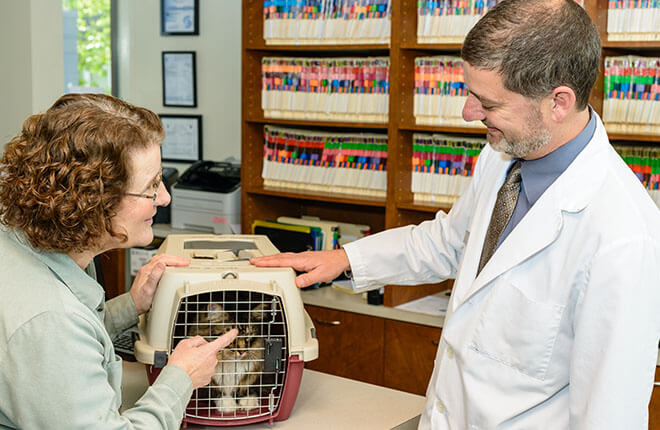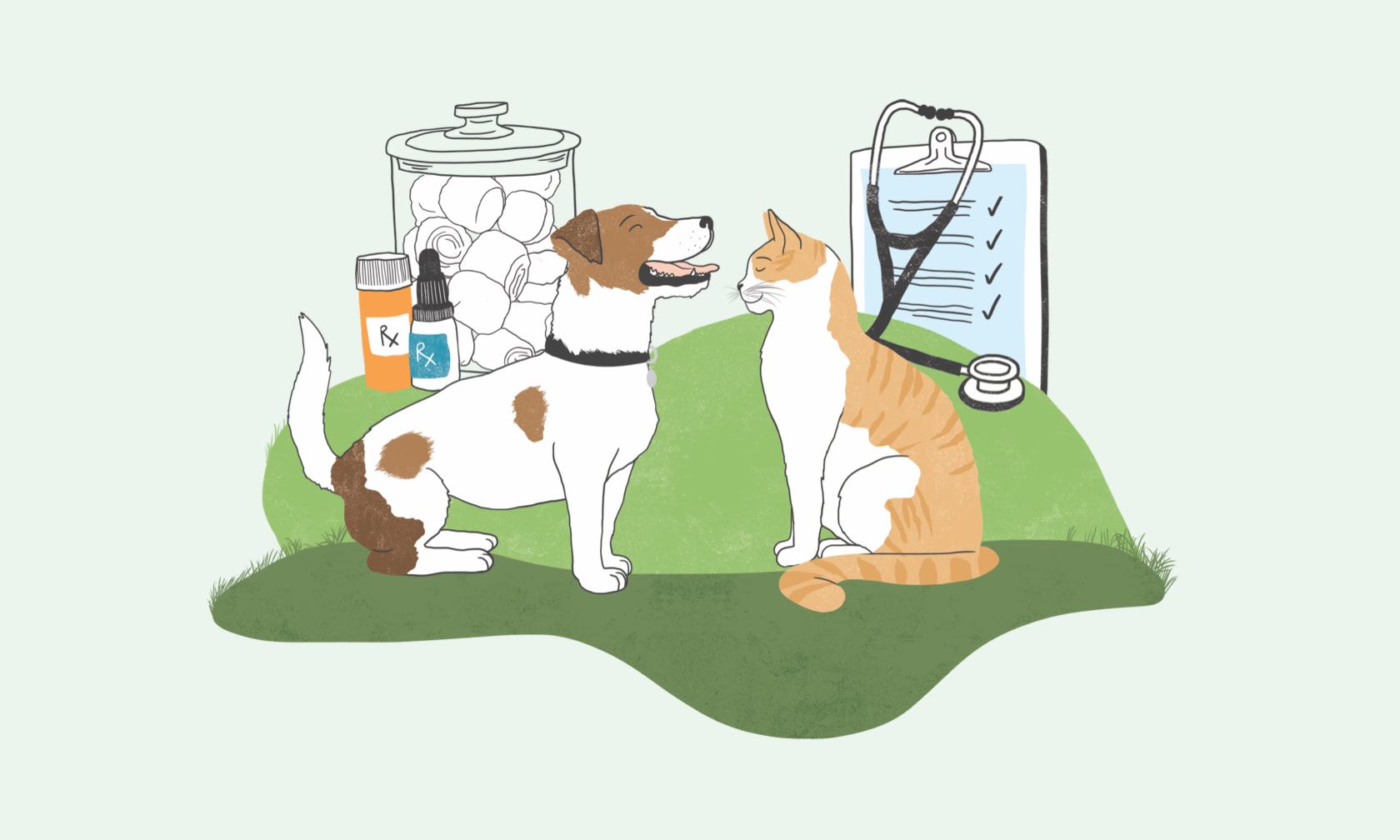When it comes to caring for our beloved pets, information is key. Here are some things veterinarians would like every pet owner to know. These tips will help your dog or cat stay as healthy and happy as possible and avoid some costly surprises.
A Yearly Visit is Crucial for Your Pet’s Health
Regular, yearly exams (or every 6 months for seniors) are essential for every pet. Most pet owners (including veterinarians who own pets) have thought to themselves at some point, “My pet is healthy and seems fine, so no need to see a vet unless they are sick.” Unfortunately, nature does not always behave nicely, and a small, unseen problem can quickly turn into a major health threat to our pets. Early detection of an illness or disease can save your dog or cat from needless suffering and expensive veterinary care. Ideally, you should have your pet examined and tested when they’re healthy, so your veterinarian can establish a baseline of what is normal for your pet.
The yearly visit is also a great time to talk with your vet about medications and vaccinations, including flea, tick, and heartworm disease prevention.
Yes, Your Pets Need Dental Care, Too
Bad breath is just one reason to take care of your pet’s teeth and gums. Daily brushing and other strategies to maintain good oral health in your pet can help prevent periodontal disease, which is painful, expensive to treat, and can lead to other serious health problems. Oral examinations and professional dental cleanings play a key role in your pet’s health.
That Home Remedy Isn’t Always the Best Option
“Natural” solutions or home remedies aren’t necessarily effective or safe for pets — some at-home treatments can even be toxic. Always discuss any potential home remedy or treatment with your vet and work with them to see if there’s a safer (and more effective) treatment.

Your Cat’s Litter Box Habits Can Tell You A Lot About Their Health
Daily litter box cleanings give you an easy way to monitor your cat’s elimination habits, which means you can quickly catch changes that may indicate problems. For example, suppose your cat is going outside their litter box. In that case, the problem could be related to stress, the litter box setup (number of boxes, location, size, type of litter, and how clean the box is), or a medical issue. It’s important to see your veterinarian for changes in your cat’s elimination habits to make sure there isn’t a medical cause and to discuss options to help your cat get back to appropriately using the litter box.
Those Extra Pounds Do Matter
Even a few extra pounds can impact a pet’s comfort and quality of life and lead to (or worsen) health conditions, such as osteoarthritis and diabetes. Your veterinarian can tell you if your pet is just “fluffy” or overweight. If it turns out your dog or cat is overweight, your veterinarian can recommend safe and effective ways to help them slim down.
Prepare for Unforeseen Costs (If You Can)
In addition to preventive care, your pet could face a chronic health condition or a medical emergency at some point. To prepare yourself for these costs, consider setting up a dedicated fund for veterinary care or getting pet health insurance. Also, some veterinary practices offer payment plans and credit lines to ensure your pet receives the care they need. Don’t be afraid to ask.
Follow These Tips for Easier Vet Visits
Many dogs and cats become anxious at the veterinarian’s office. But there are some steps you can take to make those essential appointments less stressful for you and your pet.
- Being handled. To help your pet feel more comfortable during an exam, spend time playing with their paws, handling their ears and tails, and looking at their teeth while rewarding them with treats. The goal is to touch the areas your veterinarian will touch and to make that handling and touch a positive experience for your pet.
- Cat carrier. For cats, their carrier typically signals a trip to the veterinarian, which can cause instant anxiety. Helping your cat see their carrier as a comfortable place will help them become less anxious when it’s time for a veterinary visit. Try leaving the carrier out and accessible at all times and rewarding your cat for sniffing, entering, and spending time in their carrier at home.
- Pheromones and supplements. For some pets, calming pheromones and supplements can help reduce their anxiety. Cats in particular can respond to synthetic pheromone diffusers or sprays and these can also be good tools to make carriers and vet visits less scary.
- Alert your veterinarian. If your pet has a history of becoming agitated during exams — and especially if your pet has bitten anyone — be sure to tell your veterinarian. This information enables the veterinary team to best prepare for your pet’s exam and keep everyone safe and comfortable in the process. Some pets greatly benefit from anti-anxiety or pain-relieving medications given prior to a vet visit, so don’t be afraid to ask your veterinarian if there might be a good option for your pet.
These tips come directly from veterinarians who want the very best for your pet. Above all, they want you to know it’s O.K. to ask questions or share concerns about your pet’s health and behavior. After all, that’s why they’re here — to help you give your pet the healthiest, happiest life.
ZPC-01258R1



